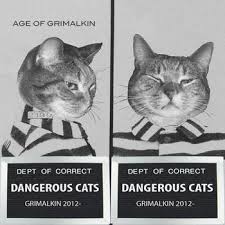Last Thursday, a new term began at the community college where I teach writing. A few hours before my class, I got the news of the mass killing at Umpqua CC in Roseburg, Oregon–a mere hour’s drive from where I live. The Writing Instructor faced his class before being gunned down with about eight of his students. Facing my own writing class that evening, I was pretty shaken, but thankful to be safe. In light of this latest tragedy, I started thinking about how we all take risks–in life as well as in our writing.
Writing Tip for Today: Why should writers take risks with their writing?
Emotional Connection
A good reason to take risks with our writing lies in the emotional connections we weave when we write from our hearts instead of only with our heads. Especially in fiction, emotions are what make our readers stick to our stories well past their bedtimes. If we can get readers to feel deeply, we can keep them devouring our words.A character who strolls through scenes as a two-dimensional robot might give us important information, dialogue and even action. But it’s only when we tap into our readers’ deepest emotions–the cravings for love, belonging, fears and phobias, that we truly capture our readers. Many times, I must rewrite a scene several times to get at the heart of the matter. At first I block out the scene’s purpose, setting, etc. As I revise, I look for character motivations, asking myself why the character is doing/saying things. The more internal questions asks, the deeper into the emotions you (and the character and readers) must go. At the bottom of the scene’s mine shaft, I usually discover the gut-wrenching reason for my character’s predicament.
Dare to Speak
Another obvious reason to take risks in writing is to speak up when silence is the norm or even mandated. Without Elie Weisel writing about the Holocaust, we might not know what it was really like. Without Steinbeck’s fictional treatment of the Joad family, the story of many in the Great Depression might have not been appreciated. Fiction can often be the best vehicle for illuminating social problems–Upton Sinclair’s The Jungle exposed the meat-packing industry. Dickens often wrote about the perils of child labor in 19th century London. By fictionalizing tragedies or social ills, writers can bring attention to problems without naming (real) names.
Be Transparent
While there are probably many other reasons to write risky, speaking the truth is an important resource for society. But have you thought about what risks you take each time you sit down at the keyboard? Whether you write about topics that make us uncomfortable, expose a social or cultural ill or simply dare to write what everyone thinks but few will utter aloud, honesty and integrity is paramount to eliciting reader emotions. If you dare to write in a way that does not hide behind cliche, stereotype or overwrought ideas, readers generally pick up on it. Write with something to say and say it from the true-est place you can find within yourself. Your readers will thank you–and want to buy your next book.






Pingback: » Is Your Writing Risky?
Hi Linda, I am looking for a mentor. My sister is a well known contemporary writer. Her name is Cindy Kirk. I have one very controversial story and need some help through the process.
Thanks!
Greg
Hi Greg,
Could you email me privately? Lindasclare (at) gmail (dot) com.
Thanks!
Linda
Thanks, Linda, for these encouraging words. I’ll highlight your post on the Christian Poets & Writers blog http://www.christianpoetsandwriters.com. God bless.
Thanks Mary,
It’s been a doozy of a time here in Oregon.
Keep Writing,
Linda
Your post affirms my writing risk-taking! Thank you! While the total focus of my stories doesn’t center around risky subjects, I always try to slip in some food for thought–whether about the innate human worth of characters with disabilities, the human flaws in our own characters, prejudices, social injustice, and forgiveness and reconciliation.I’ve always felt writing entailed responsibility to “speak out” rather than just retain the comfortable status quo.
Hi Judy,
I loved what you said about slipping in the risky stuff. We writers must take risks that no one else dares–thanks for your comment. Keep writing!
Linda